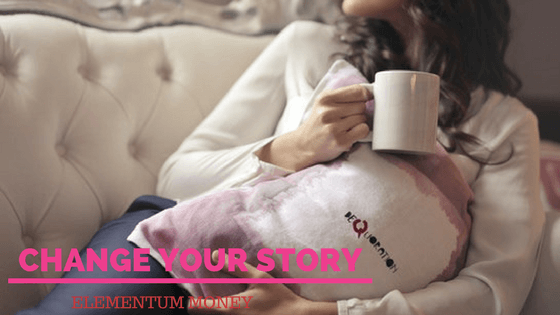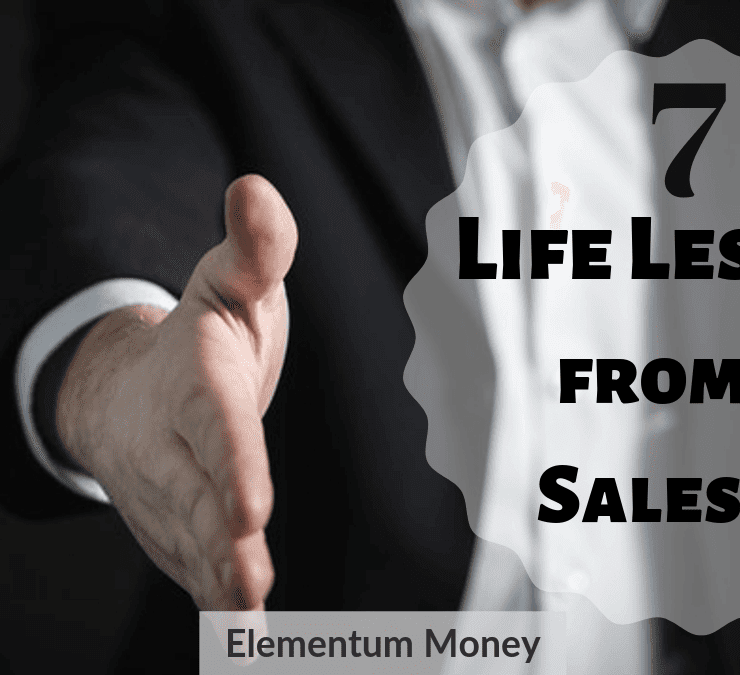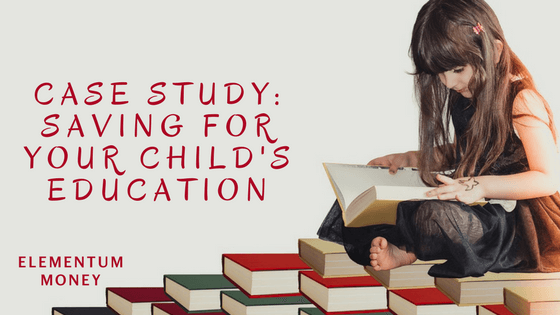
“Do you wait for things to happen, or do you make them happen yourself? I believe in writing your own story.”
? Charlotte Eriksson
We all have a choice. We can either be passive players and watch as life unfolds in front of us. Or we can grab it by its horns and decide that we want to be the controller who decides the direction in which it is steered.
Often, it is a single spark which is enough to light up that fire of choice amongst us. And then that’s it – we end up doing whatever it takes to take life where we decide to.
Continuing from Monday, read the personal stories from these 6 ladies (Psst! If you still haven’t, make sure to read more about them) as to what was their eureka moment where passivity would just not work anymore.
While we spend money every day, on a variety of things – mundane to the really memorable. The memorable ones often define our why – why is money important to us? Why do we tolerate and absorb a lot of things, just to go out there and earn money? The ladies tell us about their best money spent.
Do you have any financial goals? Research shows that our actions get better streamlined if we have a specific target in front of us. Take inspiration from the financial goals shared by our collaborators to make your own goals today.
What has been the biggest eureka moment for you with respect to money which made you sit up and start taking more notice of it?
Melanie @ Dear Debt says:
When I realized I was paying $11 per day in interest on my student loans, I suddenly became very angry — and obsessed with paying off my debt. I felt like I was flushing money down the drain. That was a huge turning point for me in my financial journey.
Liz @ Chief Mom Officer says:
I’ve been a financial nerd ever since I was a teenager. There are two large pivotal moments that made a huge difference in my financial life.
#1 – As a sixteen-year-old, I read a book called The Wealthy Barber. This was a book of financial advice written as a story. Essentially there’s a man who isn’t very smart financially, and he along with friends visits a barber who has become wealthy once every month. There’s a different lesson each month, and through time, they all become wise stewards of their money. This book had a huge impact on me, opening my eyes to what was possible if you managed your money smartly. It also gave me insights that pretty much no other sixteen year old has.
#2 – When I was thirty-two years old, and my husband 37, he went through a medical crisis that resulted in his near death. He was away from our home over a month in the hospital, ICU, and a rehabilitation center. We had two young children, I was in the middle of my MBA, working full time, and he had been responsible for caring for the kids. So I had to become essentially a single mom, caretaker, work all day, go to school all night, find care for the kids – you name it. It was quite literally the hardest time of my life. But two things happened. One, because I’d always been smart with money, I was able to cover the huge amount of extra expenses easily. So at least money was not a worry. And two, it drove me to double-down financially. We had a small amount of debt, which I totally paid off, and ever since we’ve been saving roughly half our income. So it turbo-charged my desire for financial independence.
Kristine @ Frugasaurus says:
My family never had much money, so I was always very aware of it. I guess one of the biggest eureka moments might have been just as I started my new job, and was suddenly able to pay down my student loan a lot faster than before.
The temptation was difficult to resist, so I went to my old friend: spreadsheets and maths.
It turned out that by just doubling the savings in my mortgage savings account (can only be used for a down-payment on a house, has a whopping 3.2{76b947d7ef5b3424fa3b69da76ad2c33c34408872c6cc7893e56cc055d3cd886} interest), I would reach the point at which I was earning as much interest as I was paying my student loan company by the end of the year!
To make saving even more enticing than paying off early, my interest earnings would keep growing, while the interest from the student loan company that was so aggravating to me will just keep getting smaller every month.
On top of that, having more savings means that I am more prepared if an emergency of any kind should strike us, if I lose my job or am unable to work for an extended amount of time.
So for a debt-averse person, it was a valuable lesson that not all debt needs to be paid straight away and that sometimes, math will tell you to save or invest it instead.
Penny @ She Picks Up Pennies says:
I do not have a huge debt story (unless you could a six-figure mortgage!), but before I tracked my spending, I would spend my money so mindlessly. My bills were paid, and I had savings, but I realized that my savings weren’t growing because I was frittering away ALL of the excesses.
After we got married and moved into our house, I had my eureka moment when I realized I spent thousands of dollars on shoes and handbags and other material things that I didn’t have a place to put, let alone even really want.
Ever since then, I set money goals and track my spending. It’s amazing how much more money it feels like I have now that I’m not wasting hundreds of dollars a week, even though my income is more or less the same!
Ms. Financier @ Feminist Financier says:
One of my biggest eureka moments about money is one of my very early financial memories. I was five years old and my dad explained that the bank would pay me an interest in exchange for my savings. This blew my mind – money without having to work for it!
Later, I learned the amazing power of compound interest and how quickly money can grow if you diligently save and invest early. This was a similarly eye-opening fact, and it encouraged me to start investing in college and maintain a regular habit of saving even when I was early in my career and not making much money.
Emilie @ Wise Mind Money says:
The biggest thing that made me take notice of my money was realizing how much student loan debt I was accumulating while I was in grad school. I grew up in a home where debt was not the norm; my parents paid off their debts fairly quickly and it was never normal to have a lot of debt, so that was all I knew.
I started thinking I should probably have a plan for paying off my student debt when I realized that I was borrowing $20,000 a year to go to graduate school. I started reading all I could about paying off debt and came up with a plan.
My Take:
I used to hate even the mention of the word “bank”. As fate would have it, when I was looking for my second job, I got one with India’s largest private bank. They made me an offer I couldn’t refuse.
Since then, I realized that personal finance is actually not scary. It is really corporate finance, with the whole balancing of sheets and checking of transfer accounts that bored me to death during MBA. I have some knack for numbers and began to enjoy it.
I decided to study for Certified Financial Planner, in a hope to get out the word of financial literacy.
What’s the best money you have ever spent?
Melanie @ Dear Debt says:
After I paid off my debt, my mom and I went on our dream trip to Italy. It was something we had talked about for a very long time but we didn’t do because I was in debt. So to celebrate debt freedom in Italy with my mom was pretty amazing.
Liz @ Chief Mom Officer says:
The best money I ever spent was probably when I purchased a condo at the age of 20, rather than renting an apartment. My investment of a few thousand dollars skyrocketed into tens of thousands of dollars, thanks to an overheated housing market, and it allowed me to purchase the house I’ve now lived in, for the past 12 years.
Kristine @ Frugasaurus says:
Ever? That is a difficult question.
If we are talking big stuff though, I would have to admit that moving away to attend university was the best thing I ever did. Yes, I had to get a student loan to do that, but moving to the other side of the country and meeting people from very different backgrounds to my own expanded my views on the world in such a big way that I would not be who I am today, without it.
Those are the years I actually started realizing who I was, not just who my parents had taught me to be, and slowly started forming views of my own. I found real friends and friendships that will last a lifetime and started the slow, painful process of starting to accept myself and allowing myself to be happy. Without the amazing people I met, I don’t think I would have been able to do that.
As a caveat, I will have to add that Norwegian student loans are nowhere near US loans or many other places in the world. For one, we don’t have tuition, so the loan only covers rent, food, books, etc, and does not grow to the epic proportions I’ve seen elsewhere. This plus one of the lowest interests in the country (also erased if you die, not transferred to your next of kin), makes it a loan that is easy to handle, even on a low to average salary.
Penny @ She Picks Up Pennies says:
Last summer was a little different because our son was born, but prior to that, my husband and I would save for a vacation each summer. Spending on travel always feels really rewarding to me. I love being able to see the beauty of different cultures firsthand.
Ms. Financier @ Feminist Financier says:
My partner and I took a lengthy trip to Africa that is the best money I’ve ever spent! It was the trip of a lifetime, and we indulged in amazing safaris, private tours, and several weeks away from home (and work).
One of the most amazing results of being diligent with your money is being able to do and experience things you would have never previously considered. We saved up for the trip for several years, and it was money very well spent!
Emilie @ Wise Mind Money says:
The adoption fee for my dog! I think it was a little over $100. She is the best thing ever and she’s priceless to me.
My Take:
In college, I made a bucket list once. It was a juvenile one, unlike the 100 things that I now have on my bucket list. But, one of the things on it was to buy a diamond ring for myself, once I started earning.
One and a half years after I started earning, I went to a jewellery shop and spent Rs. 18,000 ($300) to buy myself that ring. I still don’t wear much jewellery but that ring has now been on one of my fingers for the last 6.5 years now.
For me, it serves as a reminder to be financially independent.
What are your top 3 financial goals for which you are saving up?
Melanie @ Dear Debt says:
1. Build up my emergency fund (last year was awful and I had to dip into my EF)
2. Continue to put as much as possible toward my SEP IRA
3. Save for travel and adventure!
Liz @ Chief Mom Officer says:
I only have three significant goals currently, and I’m working on #1 and #2 in parallel. Once those are set I will be turning my full financial attention to #3. Note that I’m not neglecting my own retirement for these goals, I’m putting significant amounts into traditional retirement while working on them.
1 – Pay off the mortgage. I’m on track to have this paid off when I am 39, meaning I will own my home free and clear.
2 – Fund college for my three boys. I’m targeting having enough money to pay for tuition, room and board for our state’s flagship university. This should cover pretty much any school they would want to go to, and may even be too much depending on scholarships and other aid.
3 – Save after-tax for financial independence. I have a significant amount of traditional retirement savings, but my non-retirement savings is mostly tied up right now in the above two goals. Once those are achieved I will start more after-tax investing.
The reason I can focus on these three goals is that I have a solid financial foundation. I have the right insurance lined up, no debt outside the mortgage, and a solid emergency fund and plan. So I can focus fully on these three goals.
Kristine @ Frugasaurus says:
1. Downpayment for a house in the woods. Where I can start working towards growing a forest garden and most of our own food. Preferably off-grid, with solar panels/windmills and sewer composting on-site to further reduce cost/relying on outside forces.
2. Financial independence. So that I can live in the said house without a hellish long commute into the city. Could also be achieved through side hustles, online jobs and location independence.
3. Paying off said house, so that we have a safe place to live that is ours. This would drop our expenses even more, leaving only property taxes, personal taxes and what food/social expenses we still have left. At this point, we should have solid savings and side hustles providing more than enough for sustaining us for the rest of our lives.
Penny @ She Picks Up Pennies says:
My husband and I are working to have our mortgage paid off by the time I am 40. That means we will have paid off our 30-year loan of $214,000 in under 13 years. I am also saving for retirement and for more travel!
Ms. Financier @ Feminist Financier says:
Right now, I am saving up for a long-planned vacation to Australia, my partner and I are saving up for a car purchase (in the next few years), and longer-term, we are saving up to pay off our mortgage so we can be debt-free.
Emilie @ Wise Mind Money says:
1. Pay off student loan debt.
2. Buy a house in the city I want to live in, and use my current house as a rental property.
3. Financial independence with the option to quit my “day job” if I wanted to.
My Take:
1. Pay off the personal loan taken to renovate our house
2. Build a 6-month emergency fund
3. Have a running travel fund with at least 5{76b947d7ef5b3424fa3b69da76ad2c33c34408872c6cc7893e56cc055d3cd886} of the salary going to it every month
I do hope on the eve of yet another International Women’s day, these very personal stories inspire you to take action and take control of your financial life.

Take your first step today. Sign up below for the Elementum Money Weekly Newsletter to download the Financial Feminist checklist. Also, get nuggets of financial wisdom with our 3 posts every week, directly to your inbox. Have more questions, feel free to send any of them my way at aparna@elementummoney.com.
Read the first post of the series – Why Women Must Manage Money





Leave a Reply